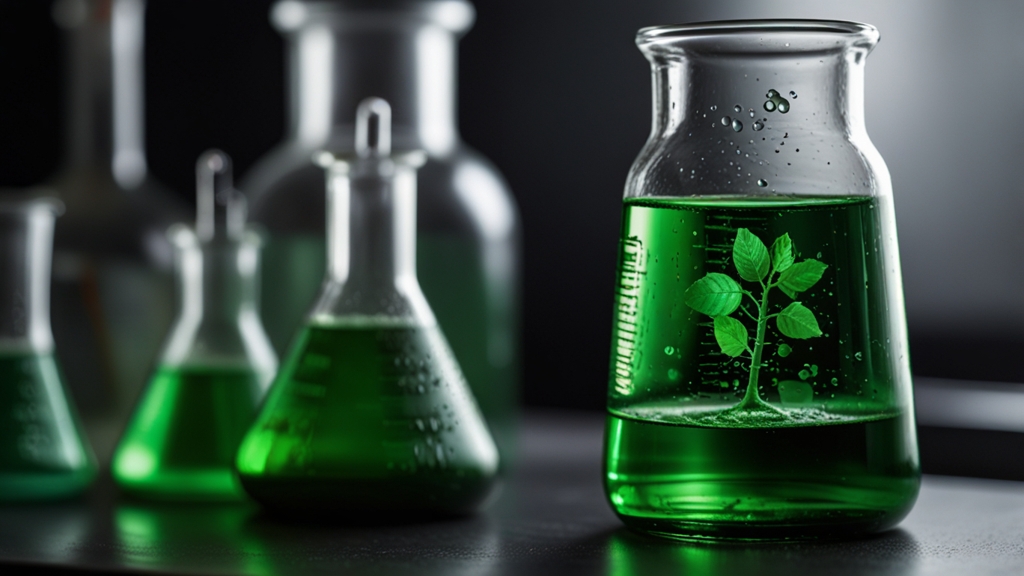Meet the Animals That Are Changing the World
When we think about world changers, iconic figures like scientists, activists, and leaders often come to mind. However, the animal kingdom is full of remarkable creatures making significant impacts on ecosystems, economies, and even our understanding of science and medicine. Let's meet some of these extraordinary animals that are changing the world in surprising ways.
Bees: The Tiny Titans of Pollination
Bees are perhaps the most famous example of animals that play a crucial role in agriculture and the natural environment. Responsible for the pollination of approximately one-third of the food we consume, bees ensure the survival of countless plant species. Their work aids in the production of fruits, vegetables, nuts, and seeds, supporting both human and animal diets.
"If bees disappear from the surface of the Earth, man would have no more than four years left to live." - Attributed to Albert Einstein
The economic impact of bees is immense, contributing billions of dollars to global agriculture annually. However, bee populations have been declining due to factors like habitat loss, pesticides, and climate change. Conservation efforts are crucial to maintaining the balance of ecosystems and the continued availability of diverse crops.
Elephants: Natural Landscapers
Elephants are often called the 'ecosystem engineers' of Africa and Asia. Their activities, such as digging for water during dry seasons and uprooting trees, significantly shape the landscape. These actions create water holes and clearings that benefit other wildlife, promoting biodiversity.
Additionally, their dung is a vital resource, aiding plant growth and dispersal. Elephant dung is rich in seeds, which are then spread across vast distances, facilitating plant propagation and maintaining healthy ecosystems.
"Elephants are keystone species. They play a critical role in maintaining the structure of their environment." - Conservation International
Despite their importance, elephant populations are under threat due to poaching and habitat loss. Protecting these gentle giants is essential for preserving the intricate web of life in their habitats.
Sea Otters: Guardians of the Kelp Forests
Sea otters are considered a keystone species because of their impact on kelp forest ecosystems. They feed on sea urchins, which, if left unchecked, can decimate kelp forests. Kelp forests are underwater areas with a high density of kelp, which are large brown algae. These forests provide habitat and food for countless marine species and help to maintain the health of oceanic ecosystems.
By keeping the sea urchin population under control, sea otters ensure that kelp forests can thrive, which in turn supports a diverse array of marine life. This ecological balance also has broader implications, such as carbon sequestration, making kelp forests important in the fight against climate change.
Dogs: Detectives and Healers
While domesticated animals like dogs might not always come to mind in a discussion of world-changing animals, their contributions to human society are profound. Dogs' acute sense of smell is utilized in various fields, from search and rescue to detecting diseases like cancer and diabetes. Medical detection dogs are trained to sniff out the chemical compounds associated with certain diseases, potentially leading to earlier diagnosis and treatment.
Moreover, therapy and service dogs improve the quality of life for people with disabilities, providing companionship, support, and even life-saving assistance. Their roles in mental health and physical therapy are well-documented, showcasing their versatility and importance.
Red Rock Lobsters: Biomedical Marvels
The Red Rock Lobster, also known as the Spiny Lobster, is making waves in biomedical research. Their hard exoskeleton and regenerative abilities are being studied for applications in human medicine. Researchers are exploring how the lobsters' ability to regrow lost limbs and repair their shells can inform advancements in wound healing and regenerative treatments for humans.
Additionally, compounds found in lobsters are being investigated for their potential antibacterial properties, which could lead to new developments in fighting antibiotic-resistant bacteria.
Conclusion
The animal kingdom is replete with species whose roles in the natural world and human society are often underappreciated. Bees, elephants, sea otters, dogs, and Red Rock Lobsters are just a few examples of animals making significant contributions to environmental sustainability, scientific advancements, and human well-being. As we continue to understand and appreciate these creatures, efforts to protect their populations and habitats become ever more crucial for the health of our planet.
"The greatness of a nation and its moral progress can be judged by the way its animals are treated." - Mahatma Gandhi
By safeguarding these world-changing animals, we are not just protecting the rich tapestry of life on Earth but also ensuring a sustainable future for generations to come.










